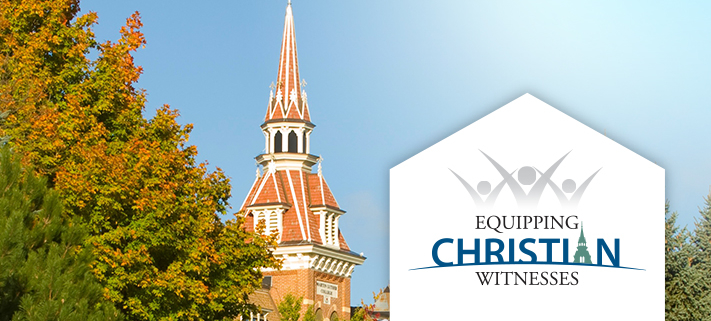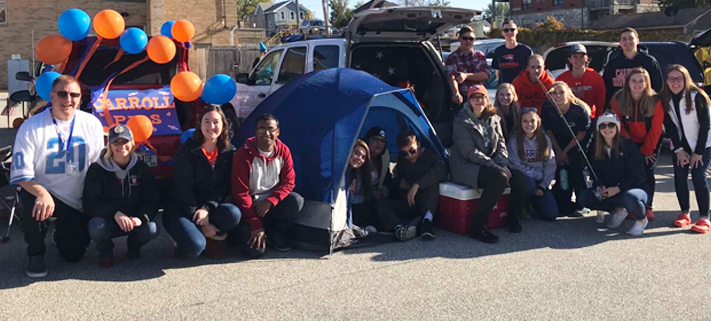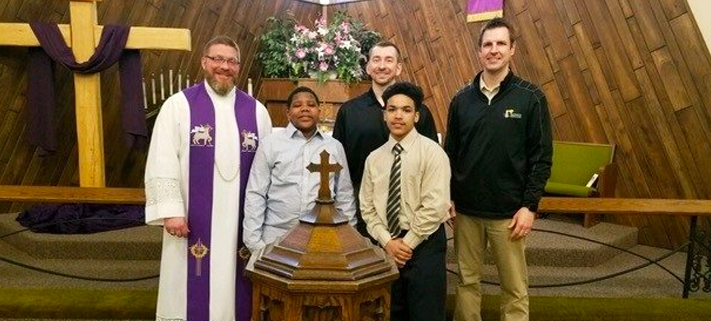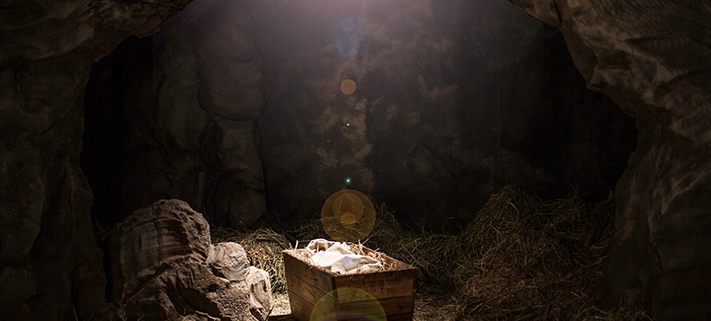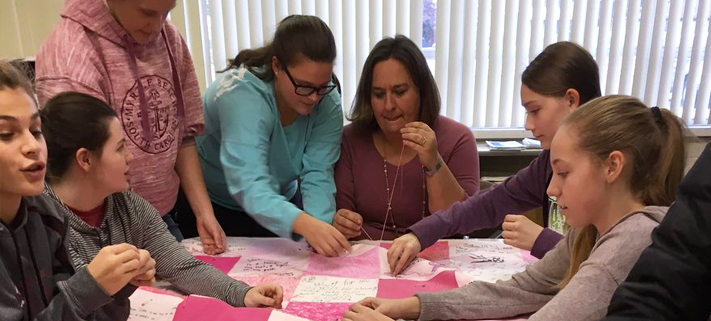Question and answer about “Equipping Christian Witnesses”- Part 2
In celebration of its 25th anniversary in 2020, Martin Luther College (MLC), with the approval of the Conference of Presidents, has begun a two-year capital campaign called “Equipping Christian Witnesses.” The synod is looking to raise $16 to $18 million through the campaign. Part of that money will go toward student financial aid. We talked to Michael Otterstatter, vice president of mission advancement at Martin Luther College, to learn more.
Do most MLC students graduate with debts?
Over the past five years, about 75 percent of our graduates have left with an average of $25,000 in loans.
Why is MLC tuition so high?
MLC’s tuition is dramatically lower compared to other similar four-year colleges. However, the net price that students actually pay—which is tuition, room, board, and other expenses minus the average amount of financial aid—is nearly the same. That’s because MLC doesn’t have the financial resources to offer as much financial aid to our students as other colleges do. MLC started the Congregational Partner Grant Program about four years ago to help meet this need.
How will MLC use my gift to help students with paying for college?
Gifts to the campaign will help fund the Congregational Partner Grant Program matching fund.
In the program, MLC matches dollar for dollar, up to $1,000, the gift a congregation gathers to apply to the tuition of their student(s) at MLC. This partnership between MLC and sponsoring congregations can provide up to $10,000 to each student in financial aid support during their years at college. And this is above and beyond all other aid that students might receive!
You can think of this program like two buckets. The first is the bucket of dollars that congregations send in on behalf of their sons and daughters. The other bucket is money that others give to allow MLC to match that gift. Gifts to “Equipping Christian Witnesses” will provide us with the resources to fill the matching bucket for the next five to ten years as we work to make this a regular part of our budget. This also provides a great way for congregations who don’t have sons and daughters going to MLC to help future called workers.
Why is this pillar of the campaign so important?
All three pillars of the campaign really fit together. Under God’s blessing, we’re asking for more called workers to meet ministry needs and opportunities that abound all over the world. If we’re planning on growth and praying for growth, we have to build for growth. So as we ask you in the first pillar to pray for and recruit more students, we also need to have financial aid ready so these students can afford to attend and don’t leave with too much debt. Finally, we need to provide facilities and housing space that will be a home away from home for our students now and in the future.
Learn more about “Equipping Christian Witnesses” at mlc-wels.edu/mlc-campaign.
Sidebar
Jeremy Fluegge, a senior at Martin Luther College studying to become a pastor, appreciates the support—both monetarily and spiritually—that he receives from his home congregation, St. Paul, Onalaska, Wis.: “The pastors and members of St. Paul’s are genuinely excited for my continued success at MLC,” he says. “It’s difficult to put into words what it means that my fellow members of the holy Christian church have my back as I prepare to bring the gospel to all nations.” Money from this campaign will help MLC fund matching grants to the tuition gifts a congregation provides for its student—up to $1,000 a year.
SUBMIT YOUR STORY
Do you have a manuscript, idea, or story from your own life you’d like to share for use in Forward in Christ or on wels.net? Use our online form to share it to our editorial office for consideration.
SUBSCRIBE TO FORWARD IN CHRIST
Get inspirational stories, spiritual help, and synod news from Forward in Christ every month. Print and digital subscriptions are available from Northwestern Publishing House.
Author:
Volume 106, Number 12
Issue: December 2019
Copyrighted by WELS Forward in Christ © 2021
Forward in Christ grants permission for any original article (not a reprint) to be printed for use in a WELS church, school, or organization, provided that it is distributed free and indicate Forward in Christ as the source. Images may not be reproduced except in the context of its article. Contact us

